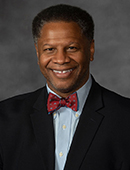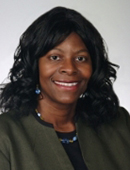The Southeastern Consortium for Lung Cancer Health Equity (SC3), led by Dr. Robert A. Winn, assembles an outstanding interdisciplinary team of translational researchers positioned in the heart of the historical and current tobacco-producing region within the southeast. Collectively, SC3’s investigative team has unparalleled experience in lung cancer screening, translational research in lung cancer health disparities, community outreach and engagement, and recruiting and retaining racial and ethnic minorities and individuals from other medically underserved groups using evidence-based strategies. As NCI-designated cancer centers, all three centers report high enrollment of underserved minorities onto interventional trials and are committed to reducing the substantial disparities found in lung cancer outcomes in their collective Black/African American and rural communities.
- Who We Are
Stand Up To Cancer works relentlessly to offer the newest, most effective, and most promising cancer treatments to patients quickly by bringing together the best minds to collaborate, innovate, and share cancer research.
Visit Who We Are - What We Do
Stand Up To Cancer enables scientific breakthroughs by funding collaborative, multidisciplinary, multi-institutional scientific cancer research teams and investigators. Thanks to the support of our dedicated partners and the entertainment community, SU2C is able to bring widespread attention to cancer research and treatments.
Visit What We Do - Clinical Trials
Research is changing the way cancer is being treated. If you’ve been diagnosed with cancer, a clinical trial may offer access to the latest and most promising science, while helping to light the path for future survivors.
Visit Clinical Trials - For Patients & Caregivers
We understand the challenges a diagnosis can bring. Browse through our list of patient and caregiver resources to help you throughout your cancer journey, and learn more about clinical trials.
Visit For Patients & Caregivers - Research
Stand Up To Cancer was created to accelerate groundbreaking cancer research that will get promising new cancer treatments to patients quickly. We won’t stop until every cancer patient is a long-term cancer survivor.
Visit Research - Ways to Give
Donations can be mailed to:
Stand Up To Cancer
P.O. Box 843721
Los Angeles, CA 90084-3721
Visit Ways to Give - Telecast 2023




